
You can compost cooked vegetables and get an excellent result for your garden, mainly when you do it properly. However, it is vital to know a few considerations before answering for sure. Understanding this knowledge will improve your compost vegetables and ensure they're as high-quality as possible.
People with compost piles create rich fertilizer that they can use for their plants, gardens, and farms. However, many people ask, "can you compost cooked vegetables?" because regular composting uses raw materials.
So, can cooked vegetables be composted? Let's take a deeper look at this question to ensure that your compost pile only gets the best food waste for its needs.
Can You Compost Cooked Veggies?
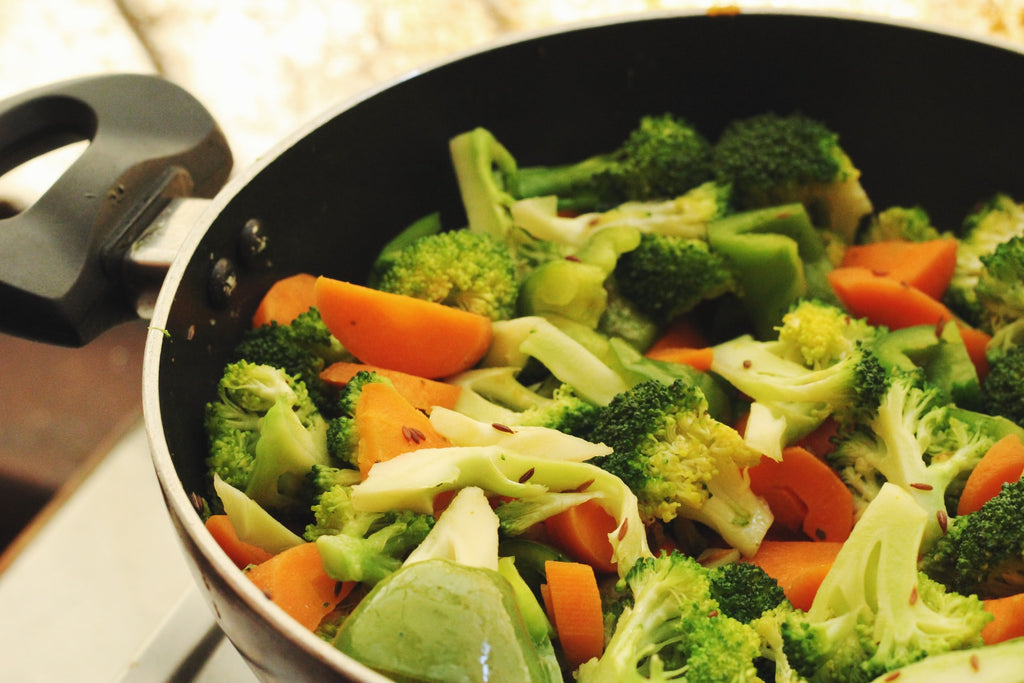
Answered simply, you can add cooked vegetables to your compost pile along with other food waste. While composting cooked foods isn't as common as uncooked food, composting cooked food waste may provide many benefits.
For example, cooked veggies rot quickly and have a high concentration of nitrogen that works well for many compost piles. However, a cooked vegetable is not a good option if cooked with various oils that may affect your compost bin. A good compost pile needs all-natural ingredients, and different cooking oils and other items may affect your compost pile quality.
Remember: not all food waste is made equally, and cooked veggies may be a concern in some compost piles.
How vegetables break down in compost
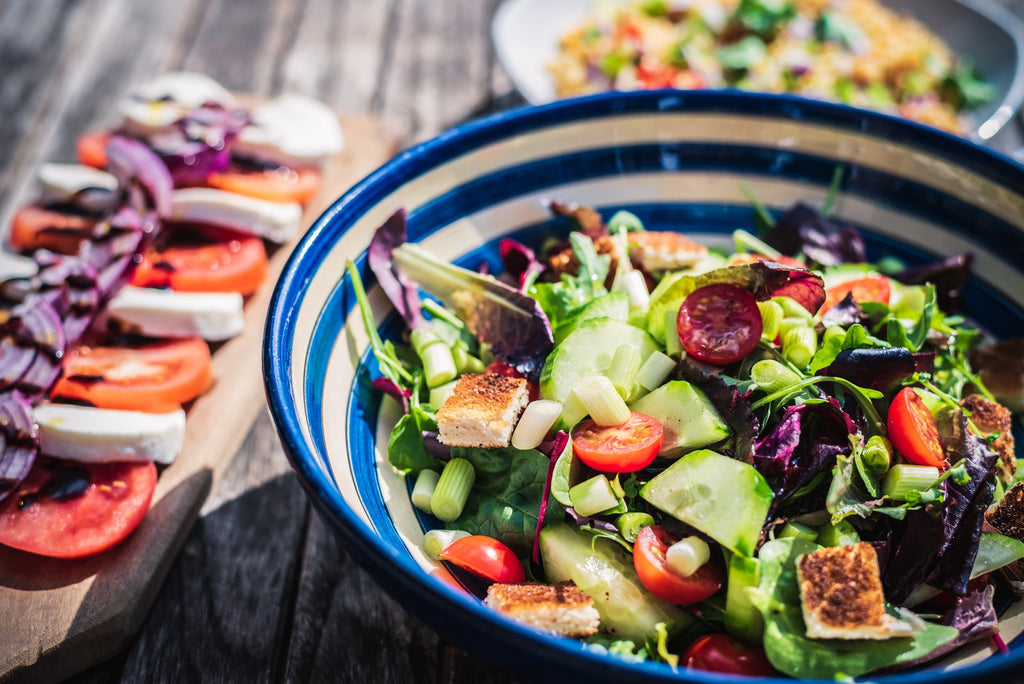
Vegetables break down in compost like any other foods, even decomposing meat. The decomposition process is basically the same with all leftover food.
As your food waste rots, it will produce anaerobic bacteria that strip food down to its core elements. As a result, the leftover residue in your regular compost bin will contain a high concentration of various minerals and elements that can help improve your soil health. Excess food is a great choice here, as they often work well in specialized compost heaps like a Bokashi bin.
Cooked vegetables decompose quickly.

As mentioned previously, cooked veggies decompose more quickly than fresh vegetables. This is both a good and bad thing. Faster decomposition introduces nitrogen and other elements into your soil faster. However, speedier rotting may also attract pests and cause further issues. That's why it's often better to bury cooked veggies in the center of a compost heap.
Cooked vegetables are generally high in nitrogen and moisture.

The great thing about cooked vegetables is that they're very high in nitrogen and moisture, meaning that your compost pile should be healthier with cooked vegetables than without.
As always, make sure you carefully consider the food waste you use. Compost cooked food waste may be best positioned in the middle of your compost bin when compacting cooked vegetables. Keeping them in this area helps your rotting food compost more easily and boosts the composting process. You may even use this technique in an aerobic compost pile, depending on how you plan on composting cooked vegetables or composting other food scraps.
Compost piles should be kept away from water sources.

This fact is something to keep in mind whether you're composting vegetables or composting meat. Runoff from your compost pile may cause complications with your water sources and could even result in you getting stiff environmental fines from local, state, or federal authorities! So keep your composting heaps far away from any potential water source, especially when composting food scraps that may attract pests.
Skip vegetables with animal foods or oils
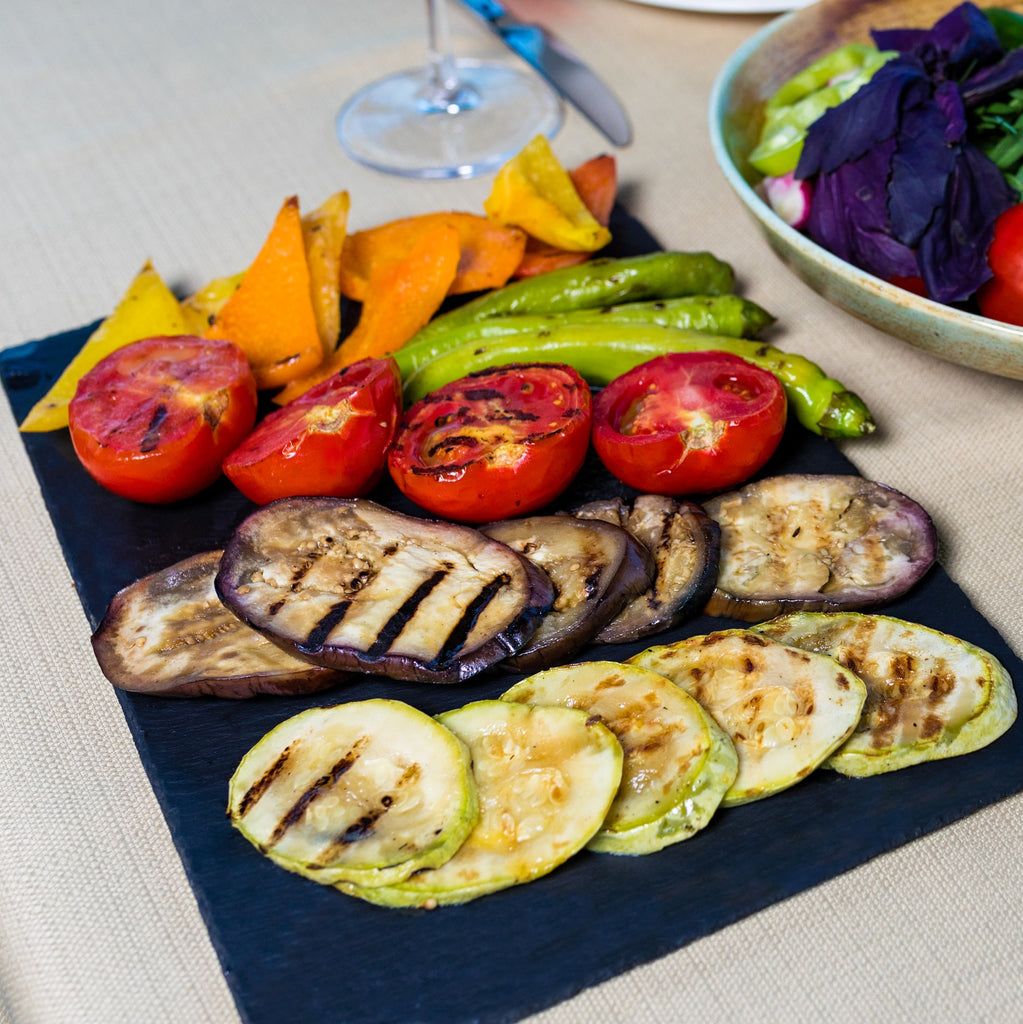
As mentioned previously, any cooked vegetables mixed with various animal products or oils should be kept from your rotting food. In addition, any vegetables covered in fat, sauces, or salt should also be kept out of your composting process. Composting cooked veggies with these items will ruin the process by affecting how well your food rots. It may also ruin your compost heap by making it impossible to use on soil.
Can I Compost Cooked Food Waste?

While some composting systems let you compost cooked food waste, many do not. For example, some Bokashi bins don't let you compost cooked food waste because they tend to putrify rather than decompose. This process produces unpleasant odors and may even affect your carbon to nitrogen ratio. So, the general composting guidelines recommend not putting cooked food scraps in your home composting systems.
However, there are always exceptions to most general composting guidelines. Typically, if the food has limited oil, fat, preservative, or other additions, it might be safe for your home composting system. Even when you heat correctly, too many plant scraps and cooked foods may create too much nitrogen. As a result, it's a delicate balance that you have to take very seriously when composting plate scrapings.
Can I Compost Cooked Potatoes?
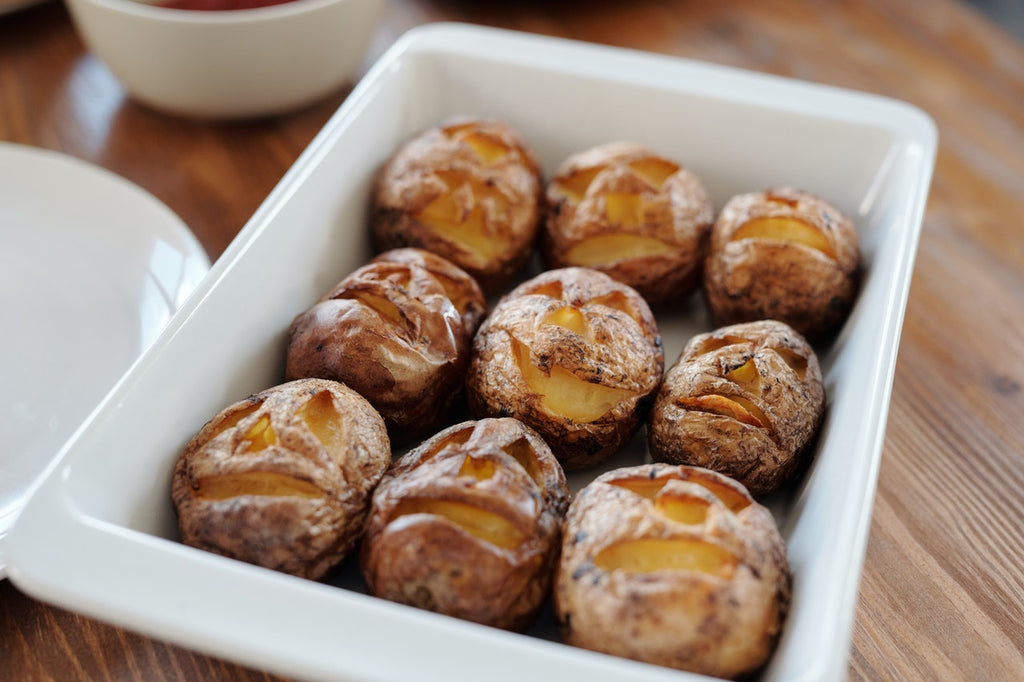
Yes, you can use cooked potatoes if they aren't too heavily flavored with various oils and fats. Leftover vegetables like potatoes and other leftover veggies, like carrots, may easily compost as long as your cooked scraps are free of any cooking additives.
Potatoes, in particular, are one of the best leftover veggies to add to your cooked scraps because it is high in nitrogen, phosphorous, potassium, and magnesium. This nitrogen-rich atmosphere is more noticeable in raw vegetables but should be noted even in your cooked leftover vegetables. Also, check your potatoes for blight or blemishes before composting, as these may affect how well they compost.
Can You Compost Cooked Rice?

You can use cooked rice, but remember, composting cooked food isn't always easy. While rice should break down quite easily in your compost bin, they don't do well in traditional bins. They usually break down better in Bokashi bins due to their unique design and nature. Often, it is best to use cooked foods in these bins, particularly rice.
While properly aerating cooked rice and other vegetable waste may help with your compost bin, composting rice traditionally is a great way to attract bacteria to your compost heap.
Remember: you want only specific bacteria on your heap, and rice can attract types you don't want.
In general, keep your rice out of a traditional heap. You may use them in a Bokashi bin, though, especially with proper aeration. In this way, you're not attracting pests or creating putrid odors by letting harmful bacteria eat your organic material. These bacteria may even cause many plant diseases! So keep rice out in traditional compost bins, please.
Can You Compost Cooked Meat?

Like with other cooked foods, composting cooked meat is a challenging process. However, cooked foods like meat may contain a high amount of protein and other nutrients and speed up the composting process. Purification is typical with cooked meats, as with other cooked food already discussed. Meat is probably the worst cooked food for composting because it attracts maggots and even E Coli bacteria.
When composting cooked foods, cooked meat should be avoided entirely. There are few instances where you can successfully compost meat without attracting more trouble than benefits. Even raw meat or meat scraps can cause the same problems, though some may find decomposing meats provide a great burst of nutrients when handled carefully. Specialized meat compost options may be available if you want to invest in them.
How to compost cooked vegetables
If you're interested in using prepared veggies in your compost pile, you can follow these simple steps. They should make preparing and composting your veggies easier without causing any problems, such as bacterial spread throughout your compost.
Strain cooked vegetables thoroughly.

Place your veggies in a strainer and run water over them for several minutes to help break apart any waste or materials clinging to their surface. You might be able to get rid of the oil, fat, or other contaminants that may affect your vegetables and make them easier to compost. Straining them also helps eliminate any excess moisture before you start cutting.
Chop veggies into small pieces.
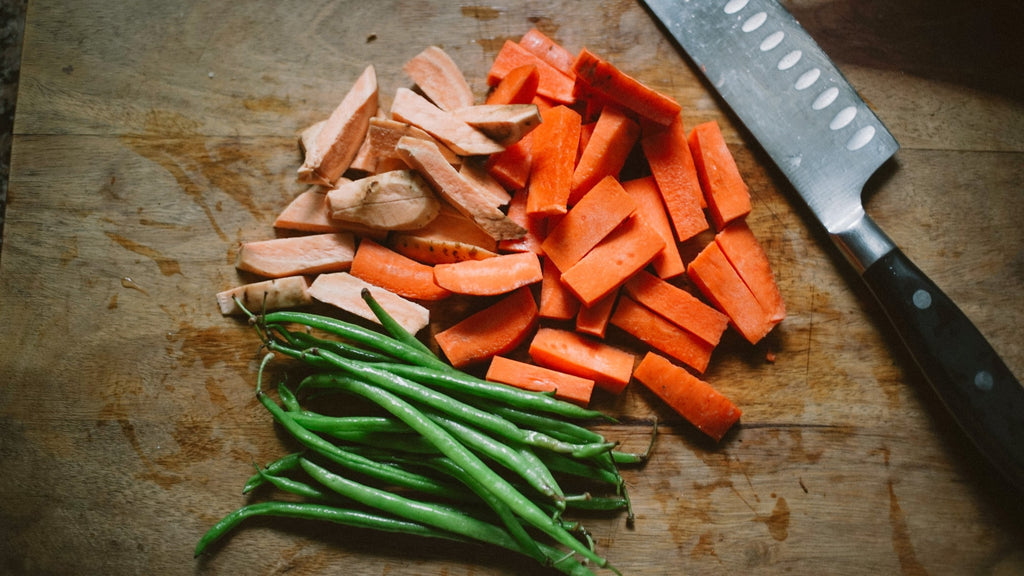
Take your veggies and chop them up into tiny pieces to ensure that they break down more quickly. Try mixing the vegetables with other types and washing your hands as you chop to minimize contamination with other bacteria. Some people even wear gloves while chopping, which is intelligent when combining other items, like tea bags, with your organic matter. Chopping also helps these materials heat properly in your heap and keep them composting correctly.
Mix veggies with other compost materials

After chopping up your veggies, place them with other materials, such as eggshells, stale bread, and other similar compost items. Breaking them apart like this and storing them in a sealed container until you compost helps keep the particles separated and minimizes unnecessary rotting before you compost.
Lawn clippings may also work well in your airtight container, shredded newspaper, coffee filters and coffee grounds, and some tea bags. Dairy products are a no-go because they tend to spoil and ruin your compost very quickly.
Which cooked vegetables should not be composted?

Any vegetables prepared with fat, combined with meat or dairy, flavored with sauce, touched by oil or fats, spiced up with salt or sugar, or with high acidic levels should be avoided.
For example, onions and tomatoes can compost well in small amounts but don't properly break down in large quantities and may affect your compost quality as well. Such daily challenges often make life hard for casual composters and should be avoided whenever possible to minimize your struggles.
Do cooked or raw vegetables compost faster?

Prepared vegetables should compost more quickly than raw vegetables because their structural integrity has already been compromised. Cooking vegetables softens them up and makes rotting much easier. Unfortunately, this rotting may be too quick and could cause pest-related problems.
This is one situation where the longer and more sustained rotting common with fresh vegetables works better for you. Consider using Lomi as a solution here, as this powerful kitchen food recycler makes this process smoother and more efficient, including multiple modes. It can work with both vegetables with ease.
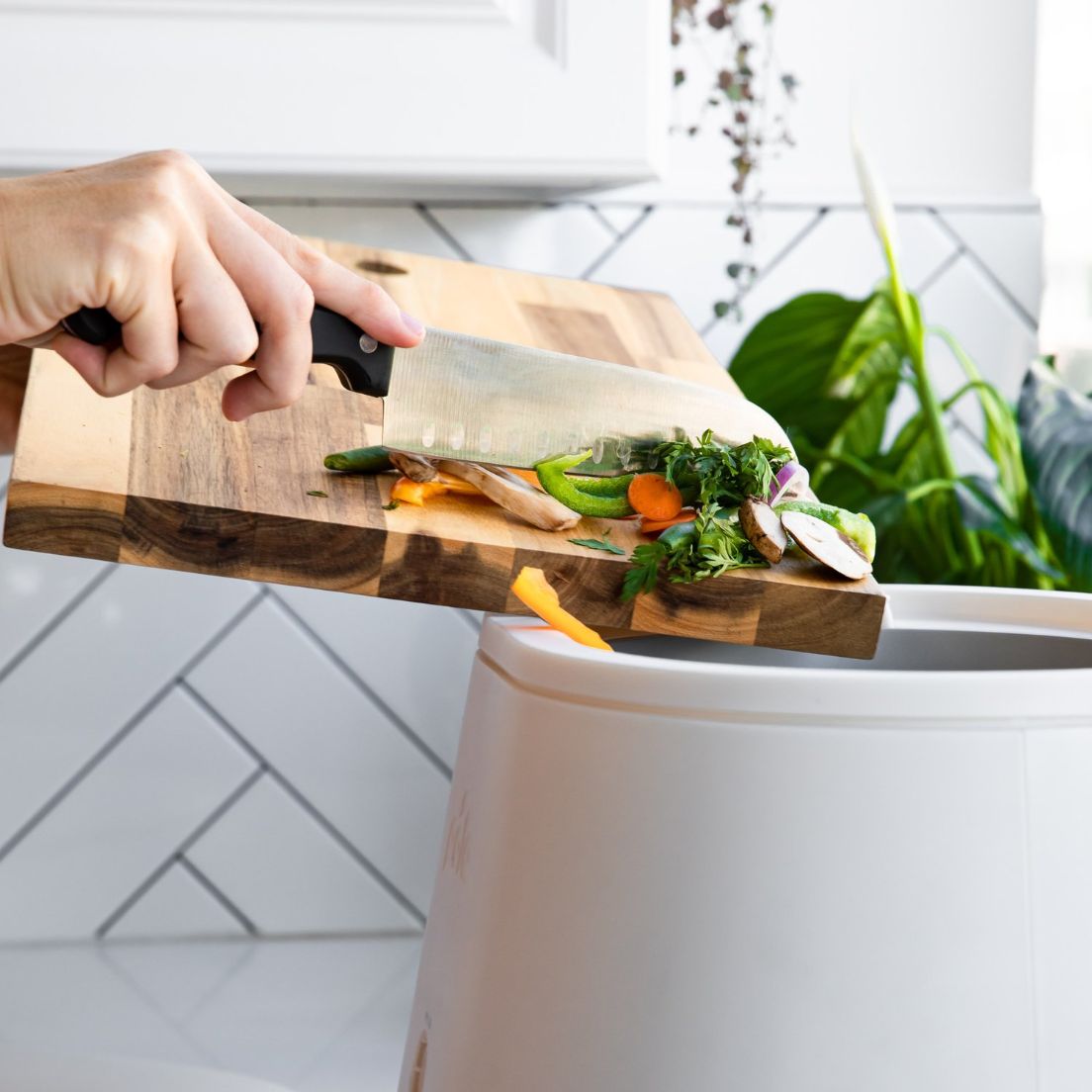
Other Ways to Deal with Leftover Cooked Vegetables

If you'd rather not compost your vegetables, you can reuse them in many ways, including:
- Creating a healthy soup and freezing the leftovers
- Cooking omelets with a rich vegetable mix
- Produce a rich salad you can share with family members
- Grill them with seafood and serve on a pita
- Take to a friend struggling to eat healthily
Is It Bad to Put Cooked Food in the Compost?

You should probably avoid putting prepared food in your compost when it comes right down to it. While properly preparing, it may help minimize many of the troubles. Casual composters may also have a harder time dealing with these challenges.
That said, feel free to add any prepared items that you've properly prepared, such as vegetables, as long as you know what you have to do to minimize your risks. Doing so can help you create great compost and reduce your risk of severe contamination in your heap.
Conclusion
So yes, you can add your prepared vegetables to compost, and doing so may provide many benefits, such as adding nitrogen and other essential nutrients to your compost. The challenges inherent to this process may scare away some people, though, so make sure you're ready to tackle them.
Please don't hesitate to contact us if you have any questions or tips about composting vegetables or meats! Remember to use Lomi, too, to help with all your food waste needs.
